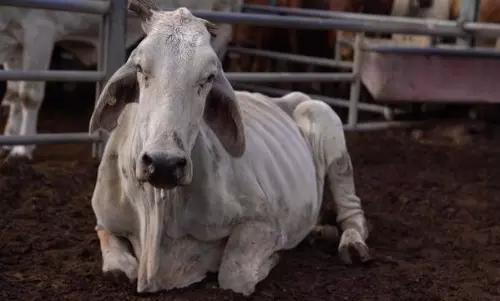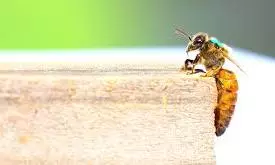
UK scientists look to queen bees for clues to longer, healthier human lives
text_fieldsA groundbreaking UK research initiative is turning to queen bees for insight into extending human lifespan and fertility, with the aim of developing revolutionary therapies that could one day transform healthcare.
The project is part of a bold plan supported by the Advanced Research + Invention Agency (Aria) - a government-backed body with an £800 million fund for high-risk, high-reward scientific ventures.
Despite sharing nearly identical DNA with worker bees, queen bees live far longer, grow larger, remain fertile for life, and receive a special diet of nutrient-rich royal jelly. These striking differences have long intrigued scientists.
Now, researchers hope that unlocking the biological secrets behind the queen bee’s longevity and vitality could lead to breakthroughs in human aging, fertility, disease prevention, and even organ preservation.
“This is the kind of bold, unusual idea that could be truly transformative,” said Yannick Wurm, a programme director at Aria and former professor of evolutionary genomics at Queen Mary University of London. Wurm will oversee research involving bees, wasps, ants, and termites - all species with fascinating biological traits that could have major applications for humans.
Wurm believes that by reverse-engineering how nature has addressed challenges like aging and long-term fertility, we might one day slow human aging, enhance our immune responses, or develop new treatments for diseases.
The initiative is one of many under Aria, an agency inspired by the US-based Darpa (Defense Advanced Research Projects Agency), known for helping pioneer technologies like GPS, the internet, and Siri. Aria gives its directors autonomy to invest around £50 million into speculative research areas, even if success isn’t guaranteed.
Already, some promising results have emerged. Last year, scientists managed to extend the lifespan of worker bees by transplanting gut microbes from queen bees. Researchers believe the combination of these microbes, royal jelly, and antioxidants might hold the key to queens’ extraordinary longevity.
Aria’s broader portfolio includes programs to develop self-healing, sustainable materials inspired by nature, reimagine plastics, explore AI safety, and test brain-computer interfaces in NHS trials.
“Plastics symbolise the failure of modern material design. We’re ready for a new age of sustainable innovation,” said one of the researchers.
Aria’s projects are designed to run for three to five years, but most are expected to take longer to yield results. Still, the agency is prepared to embrace failure along the way.























